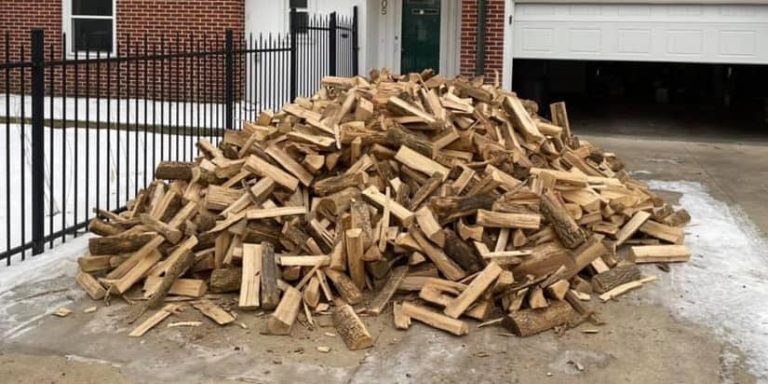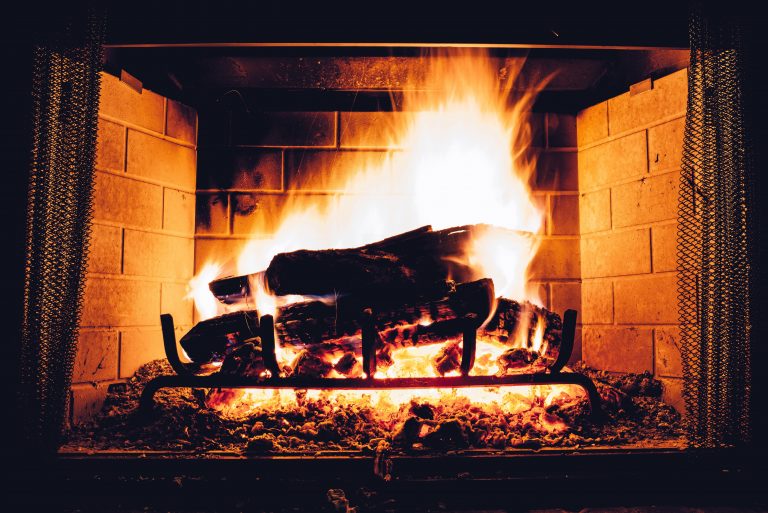Can I Burn Collected Firewood?
With colder months upon us, many people in Hunterdon County, NJ, and beyond are turning to their fireplaces and stoves to stay warm. Some might wonder if they can cut down on heating costs by gathering their own wood. The concept of using collected firewood from the backyard or nearby wooded areas can seem appealing, but it’s crucial to understand what’s involved in using this type of wood. Let’s explore whether burning collected firewood is safe, how to make it efficient, and what you need to know before bringing it into your home.
Is It Safe to Burn Collected Firewood?
Using collected firewood can be safe if you follow specific guidelines and take precautions. However, it’s essential to understand the potential risks. Collected firewood is often untreated and can carry insects, fungi, and other contaminants, which may be harmful to your home, health, or local environment. Additionally, not all types of wood are ideal for burning in a home fireplace or wood stove.
Firewood should ideally be seasoned—left to dry for at least six to twelve months to reduce moisture content. Freshly cut or unseasoned wood, especially from green or sappy trees, burns inefficiently and produces more smoke and creosote, which can build up in chimneys and pose a fire risk.
What Types of Wood Are Best for Firewood?
When choosing collected firewood, hardwoods like oak, hickory, and maple are generally better for burning than softwoods like pine and spruce. Hardwoods burn hotter, longer, and produce less creosote compared to softwoods, which can be resinous and cause more chimney build-up. Softwoods may be acceptable for outdoor fires but should be avoided in enclosed, indoor settings.
Always verify the wood type before using it in a home fireplace or stove. Mixing wood can also affect burn efficiency and safety, so it’s best to stick to one type or similar wood densities.
Preparing Collected Firewood for Burning
Properly preparing collected firewood is essential to ensure safe and efficient burning. Here are some steps to help you get the most from your wood:
- Seasoning: Season the wood by splitting it and stacking it in a dry, sunny location for six to twelve months. Proper seasoning allows the wood to dry thoroughly, lowering moisture content and increasing burn efficiency.
- Storing: Keep your collected firewood off the ground and covered but not sealed. Air circulation is key to prevent mold and mildew from forming. A tarp over the top (but not the sides) allows air to flow while keeping the wood dry.
- Testing Moisture Content: Before burning, use a moisture meter to check that the wood has less than 20% moisture. Properly seasoned wood will snap when broken, while wet or unseasoned wood bends or feels damp.
Can Burning Collected Firewood Save Money?
For those willing to put in the time and effort, collected firewood can indeed be a cost-saving solution. Gathering wood reduces the expense of purchasing pre-cut, pre-seasoned firewood. However, it’s important to account for the labor involved in cutting, splitting, and storing the wood to make it burn-ready.
In contrast, purchasing seasoned firewood from a reputable supplier can save time and guarantee you have dry, high-quality wood that’s ready to burn. NJ Pellets and Firewood offers well-seasoned firewood that’s properly stored and selected for optimal burning efficiency. This provides an affordable alternative to spending time gathering and preparing your own.
Environmental Considerations of Collected Firewood
While using collected firewood may feel environmentally friendly, especially if you’re cleaning up fallen limbs or dead trees, it’s essential to consider the broader environmental impact. Moving wood from one location to another can unintentionally spread pests and diseases. The emerald ash borer, for example, has been transported via firewood, causing significant harm to North American ash tree populations.
For sustainable heating, consider sourcing your firewood from a local, reputable supplier like NJ Pellets and Firewood. We provide firewood sourced responsibly and seasoned with care, reducing the risk of pest spread and ensuring a safe and efficient product.
Collected Firewood vs. Professional Firewood: What’s the Difference?
While collected firewood may seem appealing, professional firewood suppliers take steps to ensure wood is safe, dry, and ready for use. Buying from a supplier eliminates the risks of improper seasoning, high moisture content, and pest transfer, all of which can come with collected firewood.
At NJ Pellets and Firewood, we pride ourselves on supplying high-quality, kiln-dried firewood that burns hotter, cleaner, and safer than freshly collected wood. By choosing our wood, you’re guaranteed quality without the hours of work required to season and prepare wood yourself.
The Best Choice for Your Home Heating Needs
While burning collected firewood can work for those who take the time to season and store it properly, it’s often easier and more effective to buy firewood from a trusted source. At NJ Pellets and Firewood, we specialize in premium, seasoned firewood, ensuring you get the highest quality fuel without the risk of pests, high moisture, or inefficient burning.
Ready to keep your home warm and cozy? Contact NJ Pellets and Firewood today for all your heating fuel needs! Our seasoned firewood and heating pellets are ideal for homeowners looking for safe, efficient, and environmentally friendly heating solutions. Let us take care of the preparation, so all you have to do is sit back and enjoy the warmth.




